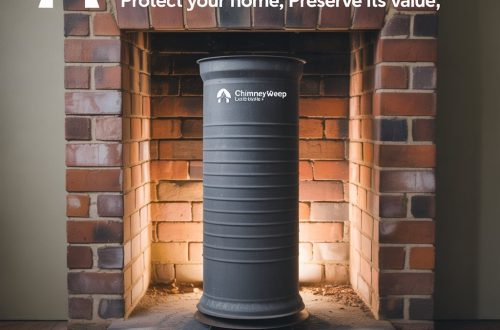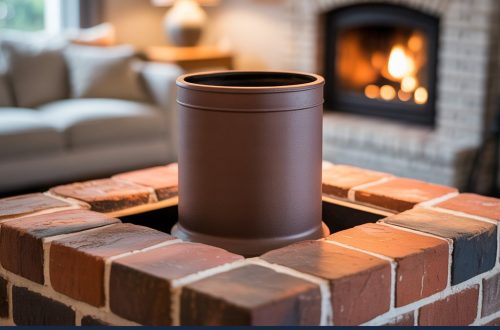There’s something really satisfying about the soft hum and steady heat of a pellet stove on a chilly Tulsa evening. It’s no surprise that more and more homeowners here are turning to pellet stoves for a cleaner, more efficient way to stay warm during winter. But just like any hardworking appliance, these stoves can run into problems—especially if they’re not cleaned or maintained regularly.
If you’ve been noticing odd noises, weak heat, or just a general decline in performance, you’re not imagining things. Pellet stoves are great, but they come with their own set of common issues, especially in areas like Tulsa where weather swings and heavy winter use can take a toll.
Let’s break down the most common problems and what they might mean for pellet stove repair in Tulsa.
1. Stove Won’t Start or Keeps Shutting Off
This is one of the most frustrating problems, especially when you’re relying on your stove to take the edge off a cold morning. If your pellet stove won’t ignite or shuts off unexpectedly, the problem could be:
- A faulty igniter
- Dirty sensors
- A clogged burn pot
- Poor airflow from a dirty exhaust system
- Control board glitches
If it’s something like ash buildup or a sensor issue, you might be able to fix it with a good cleaning. But if the igniter or control board is failing, that’s when it’s time to call a pro.
2. Not Producing Enough Heat
So your stove is running, but the room still feels cold? That’s not just uncomfortable—it’s inefficient and expensive. When a pellet stove can’t keep up with demand, it often comes down to:
- Poor-quality pellets
- A worn or dirty auger motor (which feeds pellets)
- Improper air-to-fuel ratio
- A fan that’s slowing down or not working at all
Using high-quality pellets and cleaning out the burn pot and air intake regularly can make a big difference. But if the problem sticks around, your system might need recalibration or part replacement. Either way, fixing it early helps avoid more expensive repairs—and helps lower your energy bills in the long run.
3. Strange Noises or Vibrations
“When a customer tells me their stove’s making new noises, that’s usually our first sign something’s wearing down or out of balance. Catching it early is key.”
— Tony R., Local Pellet Stove Technician, Tulsa OK
4. Pellet Feed Problems
Your stove relies on a steady, regulated feed of pellets to maintain a consistent flame. But sometimes that feed system gets blocked, jammed, or stuck. If your stove keeps going out or flames surge and die repeatedly, the auger might be struggling.
Common causes:
- Dust or debris in the pellet hopper
- Jammed pellets from moisture exposure
- Auger motor or gear wear
- Incorrect pellet size
Try emptying the hopper and vacuuming out pellet dust regularly. Make sure you store pellets in a dry area—Tulsa’s humid days can cause them to swell and jam. If problems continue, a tech can inspect the auger and motor system.
Quick Troubleshooting Table
|
Symptom |
Likely Cause |
DIY or Call a Pro? |
|
Stove won’t ignite |
Dirty igniter, bad sensor |
Start with cleaning, then pro |
|
Room stays cold |
Bad airflow, low pellet quality |
Try good pellets, then pro |
|
Loud grinding noise |
Auger or fan issues |
Call a pro immediately |
|
Pellets not feeding |
Hopper jam or motor issue |
Check for jams, then pro |
|
Smoke or bad smell indoors |
Blocked exhaust or gasket leak |
Pro—safety risk |
Cost vs. Consequence: Why Timely Repairs Matter
When you’re dealing with any kind of heating issue, it’s tempting to put it off. Maybe the stove mostly works. Maybe you figure you can get through one more season. But here’s the truth: most minor pellet stove problems only get worse over time. And the longer you wait, the more you’ll pay later.
Here’s how ignoring common issues can impact your budget and safety:
- Early repair: $150–$400 for a sensor or fan
- Delayed fix: $800–$1,200 for motor or board replacement
- Major failure: $2,500+ for full unit replacement
Not to mention, a poorly functioning pellet stove can leak smoke, waste fuel, or even risk a house fire if exhaust or heat is backing up into the room. Getting it repaired promptly isn’t just smart—it’s a serious safety investment.
The Tulsa Factor: Why Local Conditions Matter
Living in Tulsa means dealing with some wild weather patterns. That humidity, temperature swing, and red dirt can all sneak into your stove’s components—especially if your unit is in a garage or sunroom.
Pellets that sit in a damp space can swell and crumble, leading to jams and inconsistent heat. Dusty conditions also clog fans and sensors faster than you might expect. So if you live on the edge of town or in an older home, your stove might need cleaning or servicing more often than someone in a newer, sealed environment.
That’s why it helps to work with local techs who understand pellet stove repair in Tulsa and how our climate affects performance. They’ll be better at spotting the early signs and recommending solutions that actually work here—not just in a manufacturer’s manual.
Final Thoughts: Stay Ahead of Stove Trouble
Pellet stoves are an awesome heating solution—efficient, affordable, and cozy. But like anything mechanical, they need regular care. When something feels off, trust your instincts and look into it right away. Whether it’s a strange sound, weak heat, or random shutdowns, chances are the fix is simpler (and cheaper) now than it will be later.
Make it a habit to clean your stove regularly, use high-quality pellets, and schedule a pro inspection before winter hits full force. You’ll stay warmer, save on costs, and keep your home safer in the process.
Tulsa winters are better with a working pellet stove—so give yours the attention it deserves.
Read More: Chimney Sweep





